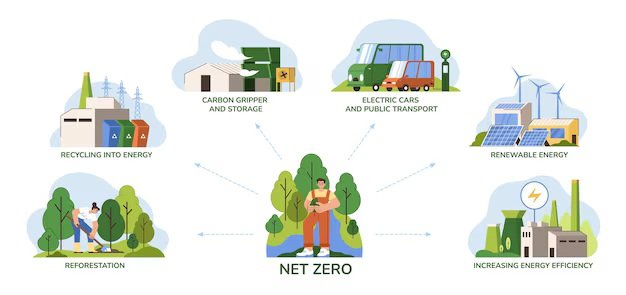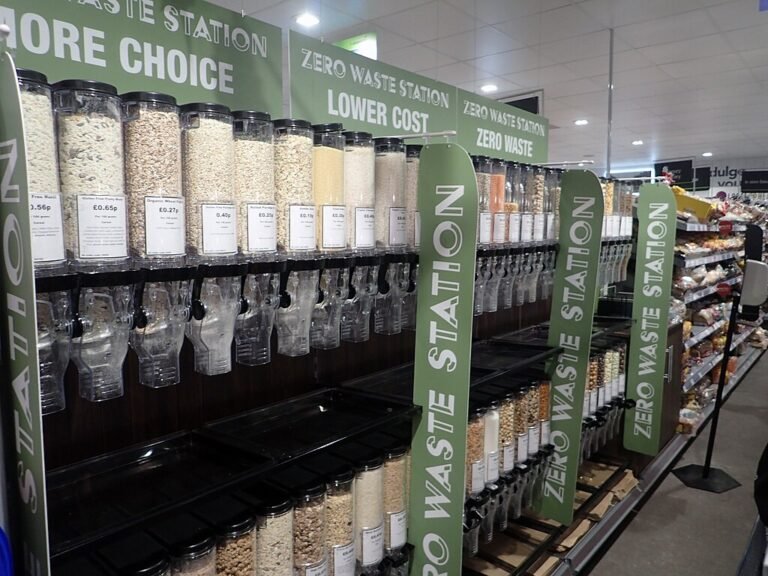What is a Supplier Code of Conduct?
If you’ve ever bought a product, whether a pair of shoes, a smartphone, or a cup of coffee, you’ve interacted with a supply chain. Behind every product is a complex web of businesses working together—often spread across different countries. Companies rely on suppliers to source materials, manufacture goods, and transport products to customers. But what happens when those suppliers cut corners, exploit workers, or harm the environment? That’s where a Supplier Code of Conduct comes in.
A Supplier Code of Conduct is a company’s rulebook for doing business responsibly. It sets clear expectations for suppliers on issues like fair wages, worker safety, environmental impact, and ethical business practices. It’s not just about following laws—it’s about making sure the companies behind the products we use every day operate with integrity.
Businesses that take this seriously don’t just avoid scandals; they build trust with customers, investors, and employees. This guide breaks down what a Supplier Code of Conduct is, why it matters, and how companies can use it to ensure ethical and sustainable business practices. Along the way, we’ll explore real-world examples, expert insights, and practical strategies to make a difference.

In This Article
- Understanding the Supplier Code of Conduct
- Why is a Supplier Code of Conduct Important?
- Real-World Implementation Challenges
- How Companies Can Ensure Compliance
- Key Supplier Code of Conduct Statistics
- Expert Insights
- Conclusion: Actionable Steps for Businesses
Understanding the Supplier Code of Conduct
A Supplier Code of Conduct (SCoC) is a company’s way of saying: “We care about how our products are made, who makes them, and the impact they have on the world.” It’s a formal document that lays out the ethical and operational rules suppliers must follow when doing business with a company. In simple terms, it’s a promise that every supplier in the chain will act responsibly, treating workers fairly, protecting the environment, and following the law.
The Supplier Code of Conduct typically covers key areas such as:
- Labour rights and fair wages – Ensuring workers are paid what they deserve and treated with respect.
- Environmental responsibility – Reducing pollution, waste, and harmful environmental impacts.
- Human rights and anti-discrimination policies – Protecting workers from abuse, discrimination, or unfair treatment.
- Health and safety standards – Making sure working conditions are safe and humane.
- Anti-corruption and compliance with legal requirements – Preventing bribery, fraud, and unethical business practices.
A strong SCoC protects not just workers and the environment but also the company itself from scandals, legal trouble, and reputational damage.
Key Components of a Supplier Code of Conduct
1. Labour and Human Rights
At the heart of every ethical supply chain is human dignity. Unfortunately, many industries—especially in manufacturing, agriculture, and textiles—have seen cases of child labour, forced labour, and unsafe working conditions. A good Supplier Code of Conduct prevents these abuses by requiring suppliers to:
- Never employ children or forced labour.
- Pay fair wages and follow reasonable working hours.
- Maintain humane and safe working environments.
For example, companies like Nike and H&M have been criticised in the past for poor labour conditions in supplier factories. To improve, they set up stricter supplier codes and increased audits to ensure workers are treated fairly.
2. Health and Safety Standards
A worker shouldn’t have to risk their life to earn a living. The Supplier Code of Conduct ensures that suppliers:
- Follow health and safety laws.
- Provide workers with protective gear when needed.
- Have emergency plans in place (e.g., fire escapes, first aid training).
The Rana Plaza disaster in Bangladesh (2013), where over 1,100 garment workers died due to unsafe conditions, showed the dire need for strong safety standards in supply chains. Since then, many companies have required their suppliers to improve workplace safety.
3. Environmental Responsibility
As businesses grow, so does their environmental impact. A responsible Supplier Code of Conduct includes:
- Waste reduction strategies (e.g., recycling, reducing plastic use).
- Sustainable sourcing of materials (e.g., responsibly harvested wood, fair-trade coffee).
- Compliance with local and international environmental regulations.
Brands like Patagonia lead the way by ensuring their suppliers follow eco-friendly practices. They even encourage customers to repair old clothing instead of buying new ones!
4. Anti-Corruption and Business Ethics
Corruption weakens trust in businesses. To prevent this, an SCoC typically includes:
- A zero-tolerance policy for bribery and fraud.
- Clear and transparent financial transactions.
- Whistleblower protection, so employees can report wrongdoing without fear.
Companies like Siemens have faced billion-dollar fines for corruption scandals. Learning from these failures, they now require their suppliers to follow strict anti-bribery rules.
5. Diversity and Inclusion
A good Supplier Code of Conduct ensures fair treatment of all workers, regardless of gender, race, religion, or background. This means:
- Equal opportunity hiring practices.
- Policies against workplace discrimination and harassment.
By prioritising diversity, companies can create more inclusive workplaces and tap into a wider talent pool.
Learn More: How A Forester Can Make Sure That an Area is Harvested Sustainably
Why is a Supplier Code of Conduct Important?
1. Ethical Business Practices
Companies that don’t keep a close eye on their supply chains risk becoming complicit in unethical business practices. From forced labour to unsafe working conditions, poor supplier oversight can lead to scandals that damage brand reputation and, more importantly, harm real people.
Case Study: Apple’s Supplier Responsibility Program
Apple has faced public scrutiny over its suppliers’ labour practices. In response, it developed a rigorous Supplier Code of Conduct and conducts regular audits. In 2022, Apple reported that over 100 suppliers were removed from its supply chain due to labour violations (Apple, 2022). This proactive approach has strengthened Apple’s brand reputation and reduced legal risks, proving that ethical oversight isn’t just a moral responsibility—it’s good business.
2. Legal Compliance and Risk Mitigation
Governments worldwide are tightening regulations on corporate social responsibility, and companies that fail to comply face serious consequences. The UK Modern Slavery Act (2015) and the California Transparency in Supply Chains Act require companies to disclose their efforts in combating forced labour. Having a Supplier Code of Conduct ensures businesses meet these legal standards, avoiding lawsuits, fines, and reputational damage.
For example, companies operating in the European Union must now adhere to the Corporate Sustainability Due Diligence Directive (CSDDD), requiring businesses to monitor and address human rights and environmental violations in their supply chains. Non-compliance can lead to legal penalties and loss of market access.
3. Sustainability and Environmental Protection
With climate change concerns growing, companies are under pressure to ensure their suppliers follow sustainable practices. A Supplier Code of Conduct can set strict guidelines on waste reduction, carbon footprint, and responsible resource usage, ensuring suppliers minimise environmental harm.
Example: Unilever’s Sustainable Living Plan
Unilever has embedded sustainability into its core business strategy through its Sustainable Living Plan, which sets ambitious targets for reducing environmental impact while increasing social value. The company ensures its suppliers adhere to strict sustainability guidelines, including responsible sourcing of raw materials like palm oil, tea, and soy. Through initiatives like the Responsible Sourcing Policy, Unilever actively works with suppliers to reduce carbon emissions, improve water efficiency, and eliminate deforestation in its supply chain. This commitment has not only strengthened Unilever’s brand reputation but also demonstrated how integrating sustainability into supply chains can drive long-term profitability and resilience.
Real-World Implementation Challenges
While an SCoC is crucial, enforcing it presents several challenges:
1. Lack of Supplier Transparency
Some suppliers intentionally hide unethical practices, making compliance difficult. A 2022 Human Rights Watch report found that many garment factories in Bangladesh falsify wage records to appear compliant with labour laws. This makes it tough for brands to detect violations unless they conduct surprise audits.
2. Cost and Resource Constraints
Not every business can afford extensive monitoring. Large corporations like Apple and Nike spend millions on supplier audits, but small businesses often lack the budget and personnel to conduct rigorous checks. Training suppliers on ethical standards also requires investment, which many companies struggle with.
3. Cultural and Regional Differences
What is considered unethical in one country may be a common practice in another. For example, long work hours are standard in some Asian countries, while they may violate labour laws in Europe. Companies must carefully balance cultural norms with ethical business standards.
4. Resistance from Suppliers
Many suppliers prioritise profit over compliance and resist change, especially if they’ve operated unethically for years. They might see SCoC policies as unnecessary bureaucracy rather than essential guidelines. Companies need strong incentives and enforcement mechanisms to drive real change.
5. Weak Enforcement and Follow-Through
Even when violations are discovered, some companies fail to take meaningful action. Some brands choose to ignore supplier violations to avoid disrupting production. Without strict consequences—such as contract termination or financial penalties—many suppliers won’t take compliance seriously.
How Companies Can Ensure Compliance
1. Conduct Regular Audits and Assessments
Regular on-site inspections help verify supplier compliance. Walmart, for example, conducts 15,000 supplier audits annually to ensure ethical practices. Random spot checks and third-party audits can further strengthen accountability.
2. Use Technology for Transparency
Blockchain technology is transforming supply chain transparency by allowing companies to track products from raw material sourcing to final delivery. Nestlé, for example, uses blockchain to ensure fair-trade sourcing in its coffee supply chain. This tech helps prevent fraud and ensures ethical practices are maintained at every stage.
3. Provide Supplier Training and Support
Suppliers often lack the knowledge or resources to meet compliance standards. Samsung runs a Supplier Development Program, offering training on ethical labour practices and environmental responsibility. Providing workshops, educational resources, and compliance guidance helps suppliers improve their operations.
Samsung has initiatives like the Samsung Supplier Code of Conduct and the eco-partner certification program, ensuring suppliers meet ethical and environmental standards.
4. Enforce Penalties for Violations
Rules mean little without consequences. Companies should establish clear penalties for non-compliance, such as contract termination, financial fines, or public disclosure of violations. H&M, for instance, terminated contracts with multiple suppliers in 2020 after reports surfaced about forced labour in its supply chain.
5. Encourage a Whistleblower System
Employees within supplier companies often witness unethical practices but fear retaliation for speaking up. Companies should set up anonymous whistleblower hotlines that allow workers to report violations safely. A strong reporting system ensures issues are identified early and addressed promptly.
6. Build Long-Term Relationships with Ethical Suppliers
Instead of focusing only on cost-cutting, companies should prioritise long-term partnerships with responsible suppliers. Brands like IKEA work closely with their suppliers to ensure fair wages, safe working conditions, and sustainable practices. Strong relationships encourage mutual investment in ethical business operations.
Learn More: What Is Lifecycle Analysis?
Key Supplier Code of Conduct Statistics
| Statistic | Source |
|---|---|
| 66% of consumers will stop buying from brands acting inconsistently with their stated purpose | BSI, 2023 |
| 53% of consumers would avoid buying from brands accused of working with unethical suppliers | Sustainability Magazin, 2021 |
| 56% of US consumers stop buying from companies they believe are unethical | Mintel, 2015 |
| 41% of consumers have stopped using an online brand due to poor reputation or malpractice | Business Wire, 2020 |
Expert Insights
Dr. Erica Plambeck, Professor at Stanford Graduate School of Business:
“Our research indicates that mandatory disclosure of supply chain practices can significantly reduce suppliers’ negative impacts, fostering more ethical and sustainable operations.”
Dr. Plambeck highlights a crucial point: ethical supply chains require more than just policies—they demand accountability. Transparency through mandatory disclosure ensures that companies don’t just set expectations but also enforce them. This proactive approach helps drive long-term ethical partnerships.
Karen Zheng, Associate Professor at MIT Sloan School of Management:
“Achieving supply chain transparency requires companies to gain visibility into their operations, which is a crucial step toward end-to-end transparency.”
Zheng emphasises the power of visibility and technology. Businesses that invest in real-time tracking and supplier education—such as blockchain-based solutions—are the ones truly driving sustainable change. Without this level of insight, ensuring compliance and ethical sourcing becomes nearly impossible.
Conclusion: Actionable Steps for Businesses
A strong Supplier Code of Conduct protects brand reputation, ensures legal compliance, and fosters sustainable business practices. Here’s how businesses can implement an effective SCoC:
- Develop Clear Guidelines – Align your code with international ethical standards (e.g., ILO, UN Global Compact).
- Communicate Expectations – Ensure suppliers understand and commit to the code.
- Monitor Compliance – Conduct audits, use blockchain tracking, and implement whistleblower mechanisms.
- Support Suppliers – Provide training and resources to help them meet ethical standards.
- Enforce Accountability – Take action against non-compliant suppliers to maintain integrity.
By embedding ethical sourcing and compliance into business strategy, companies not only mitigate risks but also contribute to a fairer, more sustainable global economy.







